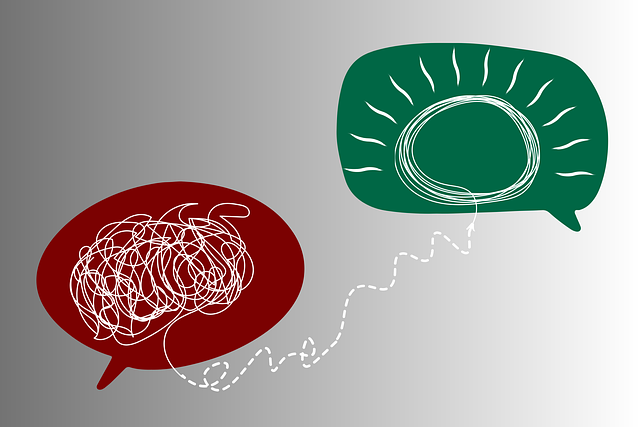Public awareness campaigns, such as those aimed at Parker Young Adults (18-35) through Parker Young Adults Therapy, are powerful tools for educating communities about critical issues like mental health. By using creative methods like social media and community events, these campaigns engage young adults facing unique challenges including career pressures, financial demands, and burnout. They promote cultural competency training in healthcare, foster empathy, and improve equitable care. Effective campaigns transform perspectives, encourage timely interventions, and enhance overall well-being. Key strategies include understanding the demographic's needs, crafting compelling messages, leveraging diverse media channels, and evaluating success through behavioral, attitudinal, and knowledge changes.
Public awareness campaigns play a pivotal role in shaping societal attitudes and behaviors, with significant impacts on various issues. This article delves into the development of effective campaigns, focusing on understanding their essence and exploring targeted strategies. We dissect key demographics, particularly among Parker young adults, and devise compelling messages for optimal engagement. Additionally, we navigate media landscapes, selecting suitable channels while emphasizing the importance of measuring success in Parker Young Adults Therapy-related initiatives.
- Understanding Public Awareness Campaigns: Their Role and Impact
- Targeting Parker Young Adults: Identifying Key Demographics
- Crafting Compelling Messages: Strategies for Effective Communication
- Choosing the Right Channels: Media and Technology Options
- Measuring Success: Evaluating the Effectiveness of Awareness Campaigns
Understanding Public Awareness Campaigns: Their Role and Impact

Public awareness campaigns play a pivotal role in educating and engaging communities on various issues, ultimately fostering informed decisions and positive changes. These campaigns are designed to shed light on important topics, whether it’s promoting mental health initiatives like Parker Young Adults Therapy or advocating for burnout prevention through mindfulness meditation practices. By utilizing creative strategies such as social media, community events, and peer support networks, these campaigns capture the public’s attention and encourage action.
The impact of well-structured awareness programs is profound, especially in addressing societal challenges. For instance, healthcare provider cultural competency training has become essential in ensuring inclusive and equitable care for diverse communities. These initiatives not only raise individual awareness but also drive systemic changes by fostering empathy, understanding, and sensitive practices within the healthcare sector. Effective campaigns have the power to transform perspectives, encourage early interventions, and ultimately improve overall well-being.
Targeting Parker Young Adults: Identifying Key Demographics

In crafting public awareness campaigns aimed at Parker Young Adults, understanding and identifying key demographics is paramount. This segment typically encompasses individuals aged 18 to 35, residing in or having a special connection to Parker—a dynamic city known for its vibrant culture and diverse population. To effectively reach this audience, tailoring content that resonates with their unique challenges and interests is crucial. Research indicates that Parker Young Adults often face pressures related to career advancement, financial stability, and maintaining a work-life balance, which can contribute to burnout and mental health issues. Incorporating themes of burnout prevention and self-awareness exercises into the campaign can help address these concerns.
The campaign should also consider the diverse backgrounds and experiences within this demographic. Given the growing awareness about mental health, it’s essential to include messages that cater to various cultural perspectives and risk assessment strategies for mental health professionals. By acknowledging and addressing these nuances, the campaign can foster a deeper connection with Parker Young Adults and encourage open conversations about their well-being.
Crafting Compelling Messages: Strategies for Effective Communication

Crafting compelling messages is a critical aspect of public awareness campaigns, especially when targeting young adults like those served by Parker Young Adults Therapy. To capture their attention and drive meaningful engagement, communication strategies must be both innovative and relatable. Incorporating elements of positive thinking and stress management techniques into campaign messaging can effectively resonate with this demographic. For instance, organizing interactive Mental Wellness workshops that double as platforms for spreading awareness has proven successful in fostering open conversations about mental health.
Additionally, aligning messages with the challenges and aspirations of young adults can enhance their impact. Addressing issues like academic stress, social anxiety, or identity formation through relatable narratives and practical solutions encourages them to view Stress Management Workshops as valuable resources. By framing these workshops as opportunities for personal growth and self-care, organizations like Parker Young Adults Therapy can cultivate a culture of proactive mental wellness among their target audience.
Choosing the Right Channels: Media and Technology Options

In the realm of public awareness campaigns, particularly those focusing on mental health initiatives like Parker Young Adults Therapy, choosing the right channels is paramount to reaching and engaging the target audience effectively. Today’s digital era offers a plethora of media and technology options, each with its unique advantages. Social media platforms, for instance, provide an excellent opportunity to connect with young adults through relatable content and interactive features, fostering open discussions around sensitive topics like self-esteem improvement and confidence boosting. Additionally, online communities and forums dedicated to mental health can serve as powerful tools, enabling individuals to share their experiences and offer support.
Beyond digital channels, traditional media such as television, radio, and print publications remain relevant. These mediums can help amplify the reach of campaigns, especially when coupled with compelling narratives and personal stories that resonate with diverse audiences. Incorporating various technologies strategically ensures that the message is accessible and engaging, fostering positive thinking among young adults seeking support or interested in confidence-boosting strategies.
Measuring Success: Evaluating the Effectiveness of Awareness Campaigns

Evaluating the success and impact of public awareness campaigns is a vital step in ensuring their effectiveness. When it comes to mental health initiatives like those aimed at Parker Young Adults Therapy, measuring success goes beyond simple reach or number of participants. A well-rounded evaluation should consider changes in behavior, attitudes, and knowledge among the target audience. This might involve pre- and post-campaign surveys, focus groups, and interviews to gauge shifts in self-perception and help-seeking behaviors. By tracking improvements in areas such as confidence boosting and self-awareness exercises, campaign organizers can demonstrate their contribution to enhanced mental wellness coaching programs development.
Additionally, long-term follow-up studies can provide insights into the sustainability of any changes brought about by awareness campaigns. This is particularly important for addressing issues that require ongoing support, like maintaining mental health awareness and promoting healthy coping strategies. Such evaluations should look at how messages resonate over time, identify potential barriers to sustained behavior change, and highlight areas where future campaigns could be adapted or improved based on what has been learned.
Public awareness campaigns play a pivotal role in educating and empowering individuals, especially Parker young adults. By understanding target demographics, crafting compelling messages, and leveraging the right communication channels, these campaigns can effectively promote mental health initiatives such as Parker Young Adults Therapy. Measuring success through evaluation ensures that efforts are not only reaching but also positively impacting the intended audience. This structured approach fosters a more informed and supportive community for Parker’s young adults.














